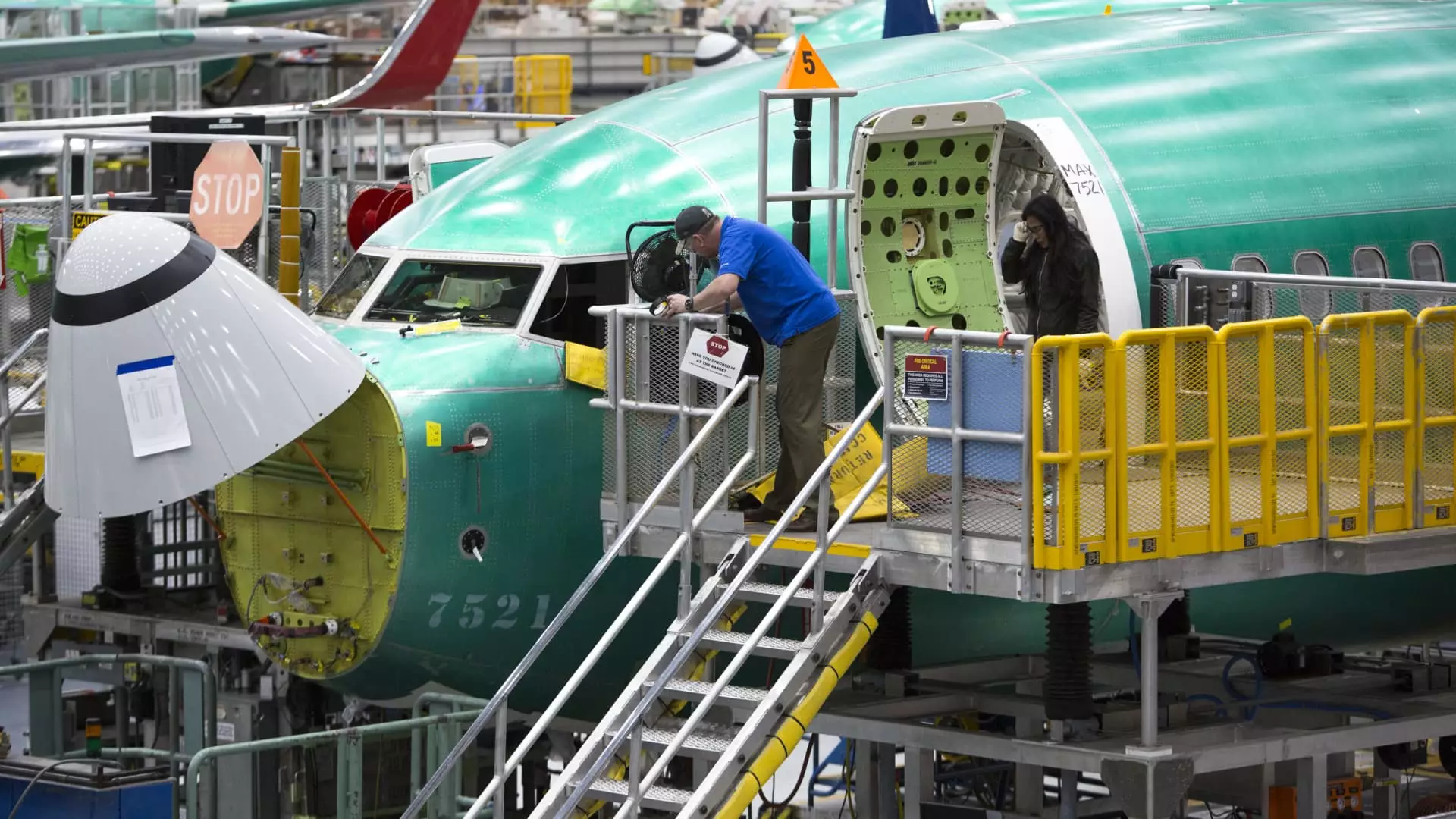Boeing, one of the largest aerospace manufacturers in the world, is at a precipice as its workers are preparing to cast their votes on a pivotal new labor contract. This decision is not just a routine procedural step; it has the potential to escalate into a significant strike that could cripple the company’s production capabilities at a time when ramping up manufacturing is crucial for its future. The much-anticipated vote, occurring on a Thursday, comes on the heels of a tentative agreement reached between Boeing and the International Association of Machinists and Aerospace Workers (IAM), unveiled just a few days prior. This agreement promises substantial wage increases of up to 25%, alongside enhanced healthcare and retirement benefits, presenting a strong incentive for workers.
The IAM represents over 33,000 Boeing factory workers situated in the Seattle area as well as Oregon. Frustration is palpable among the employee base, who initially sought an ambitious 40% wage increase—a figure reflective of their growing discontent with past negotiations. The workers are acutely aware that this contract could shape their financial and professional futures. While the proposed 25% increase aligns closely with union agreements secured in other major industries last year, it still falls short of the workers’ initial demands. This balancing act poses a significant dilemma for the workforce: should they accept a proposed agreement that, while beneficial, may not fully satisfy their expectations?
CEO Kelly Ortberg, relatively new to his role, finds himself under scrutiny not only from his higher-ups in the corporate structure but also from the very workers he represents. In a candid staff note, Ortberg reflected on the emotional responses elicited by the tentative agreement, urging workers to consider the long-term implications of their vote. He emphasized the need for unity and collaboration in overcoming the challenges that have beset Boeing in recent years—issues that have included safety lapses and quality control failures. Ortberg’s plea for patience and solidarity underscores the high stakes involved; should the workers opt for a strike, it could adversely affect Boeing’s recovery efforts and the trust built with customers.
Should the contract be rejected, the consequences could unfold swiftly. The union stipulates that if two-thirds of the voting members favor a strike, a work stoppage could commence as early as midnight on the Friday following the vote. This potential disruption looms large over Boeing, which has already been grappling with operational challenges exacerbated by prior missteps. A work stoppage would not only halt production but could also have cascading effects on Boeing’s reputation within the industry, further jeopardizing existing contracts and partnerships.
Conversely, if less than two-thirds of workers opt to strike and the contract is rejected, it will take effect automatically. This duality presents a unique and stressful scenario for the Boeing workforce, thrusting them into a complex choice that pits immediate grievances against future security.
The Boeing workers’ vote is not just a localized issue; it reflects wider trends in labor negotiations across various sectors. Recent labor successes involving higher wages in industries ranging from automakers to Hollywood set a precedent. The urgency of the situation magnifies when juxtaposed against the backdrop of socio-economic shifts that have drawn attention to worker rights and equity in compensation.
As polling day draws near, all eyes are on the Boeing workforce. Their decision will not only influence their own livelihoods but may also set the tone for labor relations in the aviation industry for years to come. With the contract’s potential to shape the company’s path forward, it stands as a pivotal moment not just for Boeing, but the entire landscape of American labor relations. Employees find themselves at the intersection of hope and apprehension, facing a critical decision that could redefine their working conditions and the future of the organization itself.


Leave a Reply